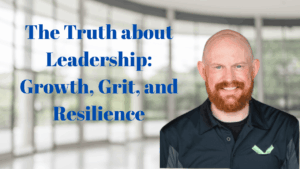
What makes an SE a good SE?
1- Not only knows the product, but also knows how to sell it. Anticipate objections and knows how to overcome them
2- Is able to project manage whatever project he or she are doing. Could be a POC, making sure a feature request is going through, following up on opportunities
3- Means what he or she says and follows through on commitments. If I say I will send you this information by this day, I will send you this information by this day or I will let you know I’m late.
4- Does not need explicit instructions from the salesperson, knows what to do on his or her own. The SE knows what opportunities that should be worked on, follows up with his contacts on that opportunity. Or if something is with Product Management, he proactively follows up and does not wait for his salesperson to ask about this.
5- Communicates clearly vie email, presentation, demo
6- Advises the salesperson on what they should do and sell.
7- Educates the customer on the topics that he or she are experts in. Although SE’s job is to perform discovery calls, ask a lot of questions,
8- Generalist SEs can talk about different products without being the expert
9- Specialized SEs knows their product inside out
10- Manage resources: time, equipment, other SEs, PMs, experts
If you’re a brand new SE, you’re not going to be great at all of that at the same time. You will have to work on it.
Here are my thoughts about how to get there:
There is a general rule that I live by, and the book the Atomic Habits articulated it better which is the 1% Rule, and that is: be better by 1% today than you were yesterday.
1- Learn your product(s):
As a sales engineer, there are way too many things that you need to learn really quickly – part numbers, licenses, architecture, different products. Come up with a learning plan to help yourself focus. The problem here is that as a new SE, or even an experienced SE in a new company, you don’t know what you don’t know. What day to find out what you are lacking is to meet customers and listen to the questions they are asking, then try to figure out how to answer those questions or, let’s go to point number 2:
2- Find a mentor:
Does not have to be official. Usually, when you join a new company as an SE, you will have a mentor assigned to you. Not all mentors are created equally. If you have a good mentor, great. If not, find an unofficial mentor and cozy up to them. Ask them for advice. Try to shadow them. You can find out which SEs are good SEs by talking to your managers or looking at the email lists to see which SE answer more questions than others to help other SEs.
3- Understand what your weaknesses are and try to fix them.
There is a theory out there that people should focus on their strengths and outsource their weaknesses. That could work for entrepreneurs, however, when you’re a lowly SE, you cannot outsource your weaknesses. You can ask for help, but you still need to do the work. The same way you have a learning plan for the products, you should have a learning plan to improve your weaknesses – usually are soft skills.
Join Toastmasters
Take online courses
Read books about.
Listen to podcasts
Go out and implement. Cal Newport, author of Deep Work and So good they can’t ignore you says he schedules 1 hour of implementing for every hour of learning (I may have butchered what he actually said here). All the learning in the world will not help if you do not implement. If you learn a new presentation technique, try it in your next meeting or better yet, schedule time with your colleagues to try it out.
4- Fail.
Failure is the best teacher. Don’t be afraid to fail. In the previous point, I said try your new presentation technique, well guess what, it’s going to suck. You’re not going to do it properly. You know why? Because you’ve never practiced it. You will never pick up a guitar for the first time and be as good as Jesse Cooke. You’re not even going to know how to hold a pick properly. But if you never hold a pick because you’re too afraid to fail, you are never going to succeed. The path to success is littered with failure. Not sure if I stole this from anyone though.
5- Practice.
This piggybacks on what I just said. If you don’t practice on your own, then you will practice in front of the customer, and that is not a good time to do that.
6- Take notes.
Richard Branson takes so many notes to the point that he’s been accused of recording meetings. This is from his book the Virgin Way. I’m not talking about taking notes in meeting with customers only. I mean take notes when a colleague says we had issues with this demo due to this and we had to do it this other way to get it to work. Or if you’re talking to a PM and he says we did this product this way because it offers these benefits.
7- Create good habits and get rid of bad habits.
Habits allow you to do things automatically. If your habit is that every morning you will read 15 minutes of some website about your work, that is better than watching 15 minutes of youtube when you come into the office because that snowballs into hours of watching. Or develop the habit of not saying anything for a couple of seconds after the customer stops speaking to make sure that they said everything they needed to say rather than have the habit of interrupting the customer mid speech.
8- Don’t stay in your bubble.
I stayed in my bubble for a year and a half learning from my sales guys who to do the perfect spray and pray. Then I followed my own advice and looked to one of the better SEs in the company, and turns out that no matter how good you are at the spray and pray, it still sucks the life out of the customer listening. It got confirmed by my VP of sales as well.
9- Be coachable
Don’t think you know it all because you don’t. I’ve learned from people I’ve mentored as much as I’ve learned from my own mentors. When someone gives me feedback, I internalize it and make sure I understand them correctly and how I can implement it in my work.
10- Market yourself.
Find a topic you like, become the expert in it, or even interview experts about it. By default, you will be seen as an expert. Take Nerd Journey for example. John and Nick the hosts are marketing themselves as VMware SEs who know a lot about organizations, getting promoted and more. I also believe they have blogs dedicated to Vmware stuff. The folks from PacketPushers started the podcast and marketed themselves. Now that’s what some of them do part-time.
Now my final piece of advice is don’t try to do all that at the same time. Pick one and focus on that. For example, create a learning plan and focus on following that. Don’t worry about the rest until you’ve built the habit of following your learning plan. The rest will come after.
Some more links from the show:
Music on the show: Watchmaker’s Daughter by Reeder



